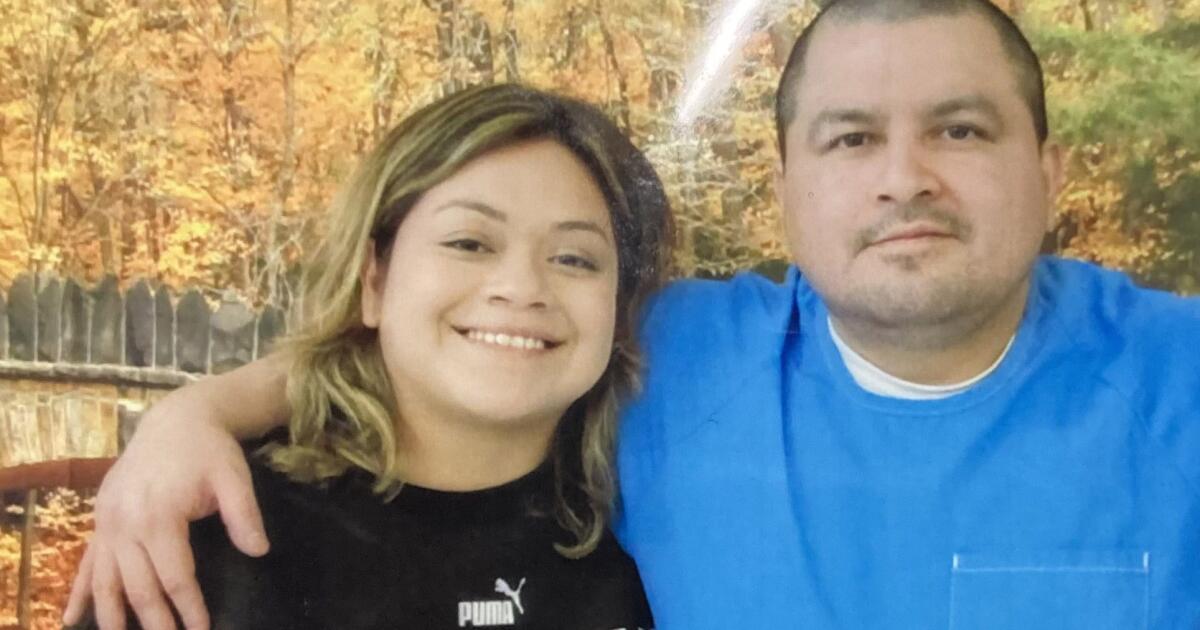The teenager kept crying and telling the detectives: This was wrong. He was innocent. Hours earlier, just before dawn, he had been awoken by a phalanx of officers who had stormed into the small Hollywood apartment he shared with his mother and sister. They had dragged him out of bed, brought him here and told him he had been identified as the shooter in a gang-related murder that had taken place on Sunset Boulevard a few months earlier. All that remained was for him to tell police what he had done.
At one point, officers left the room, and the teen pleaded with God to help the officers understand: He hadn’t killed anyone. But the officers would not accept that. They insisted the only way forward for him was to stop protesting his innocence and tell them how he had been involved
…
After hours of questioning, Lombardo Palacios, a refugee from Guatemala who had a passion for art and was fiercely protective of his younger sister, finally told officers what they had asked for — sort of. He said he had been at the scene, maybe in the morning, or maybe when “it was kind of late.” Maybe he had shot a revolver in the air, he said. Maybe he had pulled the trigger twice. Maybe the victims had been walking in a parking lot when they were shot.
…
Police would build a case against him and a young woman he said he did not know, Charlotte Pleytez, then 20 and pregnant, with the murder of Hector Flores, a former member of a rival gang. In 2009, they were convicted in L.A. County Superior Court, and both were sentenced to 50 years to life in prison. (Flores’ fiancee, sitting in the passenger seat, was shot and wounded in the same attack and survived.)
But, according to new findings from the L.A. County district attorney, neither Palacios nor Pleytez had any involvement with the crime. Palacios’ confession, said Dist. Atty. George Gascón, was false. Gascón told The Times this week that he is “convinced that not only are they innocent, but we believe we might know who committed the murder.”
…
Los Angeles County Superior Court Judge William C. Ryan reviewed the petition Tuesday, but there was a twist: Unexpectedly, the prosecutor who originally tried the case, Dayan Mathai, showed up to protest.
“I felt obliged to come before your honor and ask for an opportunity to file a declaration that sheds light on the credibility of some of the witnesses” who are supporting exoneration, Mathai said. He added that a victim also wanted to be heard.
Thomas Trainor, the prosecutor handling the case for the district attorney, said that after reviewing the court file, the district attorney’s file, the police file and trial transcripts, he was “very confident in the analysis” that led him to ask for the pair’s convictions to be set aside. Still, Trainor said, Mathai should be “given an opportunity to be heard.”
“I’m sorry to have to postpone this,” Ryan said. “I am.”
But he did, pushing the hearing to Nov. 1.
Archived at https://ghostarchive.org/archive/2mQmA
Not a new problem:
Julia is famous among psychologists because she was able to implant false memories into a group of subjects and convince 70 percent of them that they were guilty of a crime they did not commit, and she did so by using the sort of sloppy interrogation techniques that some police departments have been truly been guilty of using in the past.
https://youarenotsosmart.com/2020/05/19/yanss-179-the-memory-illusion/
Seems a good place to post everyone’s regular reminder to not talk to the police.
And to be clear, I’m not saying this kid is at fault in any way. It’s just very useful info to have that may help save others from similar outcomes.
So a 15 year old has been in prison for 15 years for a conviction based solely on witness IDs from a book of photos. Two of the three witnesses said in court they weren’t 100% sure their ID was correct. There was absolutely no other evidence linking him to the crime.
At this point, even if he is guilty I might feel like 15 years is a good sentence for a first time offender who was only 15 at the time of the crime.
deleted by creator
The confession was not used at trial. The conviction was based on an ineffective photo line-up technique. Another person was also wrongfully convicted in this case using a similar technique.
The interrogation was definitely not good, but it was not the root of the problem here. A shitty photo line-up methodology got them convicted and should be the focus of upset, in my opinion.
A California law that went into effect in January now bars police from using this method on juveniles, prohibiting law enforcement “from employing threats, physical harm, deception, or psychologically manipulative interrogation tactics,” on subjects 17 or younger. The interrogation method still remains in wide use for adults, much to the chagrin of some who see it as outdated.
It is a method that is “inherently deceptive and harmful to the pursuit of justice,” said El Dorado County Dist. Atty. Vern Pierson, who advocated for the new law prohibiting the technique in juvenile interrogations.
“There’s a better, more effective and ethical way for law enforcement to conduct interviews,” Pierson said.
At least we’re making some small amount of progress. It used to be that cops would beat a confession out of someone. I hope these people get justice. And a fat settlement.
The taxpayers foot the bill. That ain’t justice. Pull it directly from the police budget and tell the police union to pound sand; it’s the only way to force real change.
Agreed, cops should pay settlements. But until we get there, taxpayers will be burdened and the people wronged should still be compensated.



